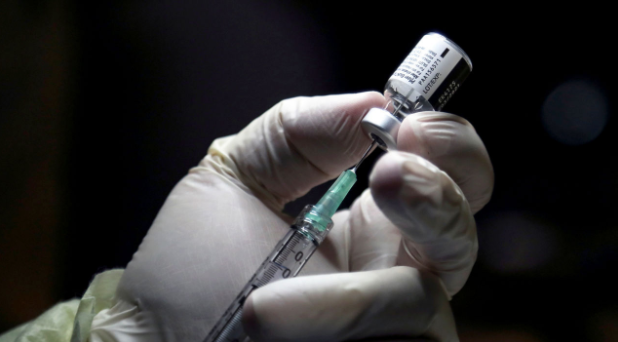COVID-19 Update December 30, 2020
- icshealthsciencejournal

- Dec 30, 2020
- 3 min read
This article contains:
The Cause of Allergic Reactions to mRNA Coronavirus Vaccines
The Cause of Allergic Reactions to mRNA Coronavirus Vaccines
Written By: Paphapin Pairojtanachai
Over the past three weeks, there has been a number of people who had severe allergic reactions after receiving the Pfizer-BioNTech coronavirus vaccine. Scientists are suspicious that the cause of these allergic reactions is a compound in the messenger RNA (mRNA), which is the major component of both the vaccine developed by Pfizer and that developed by Moderna.
It is currently believed that the compound that provokes an allergic reaction is polyethylene glycol (PEG), which has never been used in a vaccine and is commonly found in drugs that are known to trigger anaphylaxis — a serious and potentially deadly allergic reaction with symptoms including itchy rashes, swelling of the throat or tongue, shortness of breath, vomiting, lightheadedness, low blood pressure, and fast heart rate. Some immunologists speculate that those who had an anaphylactic reaction to the COVID-19 vaccine may have been exposed to PEG prior to receiving the vaccine, and thus they had an allergic reaction because of the high levels of anti-PEG antibodies in their bloodstream.
Everyday products, such as toothpaste and shampoo, contain PEGs as thickeners, solvents, and softeners. In addition, PEGs are also used in laxatives, or substances that relieve constipation. More and more biopharmaceutical companies are adding PEGs to their compounds as well. In the case of both Pfizer’s and Moderna’s vaccines, the mRNA is packed in lipid nanoparticles (LNPs), which assist in transporting the mRNA to human cells and boost the immune response. These LNPs are “PEGylated”, meaning that they are bound to PEG molecules, which help stabilize the LNPs and increase their lifespan.
According to a study at the University of North Carolina, Chapel Hill, about 72% of the population have at least some antibodies against PEGs due to exposure to cosmetics and pharmaceuticals. Approximately 7% have an amount of anti-PEG antibodies that is enough to predispose them to anaphylactic reactions. However, during the clinical trials done by both Pfizer and Moderna, there were no adverse reactions in the tens of thousands of participants who were administered with the vaccines. The reason is that both companies did not include people who have a history of being allergic to a component of the vaccines or who have previously had allergic reactions to any other vaccine. Although people who have had severe reactions to food or drugs were not excluded, they were underrepresented in the trials.
Meanwhile, other scientists are not convinced that PEG is the cause of the allergic reactions. Moein Moghimi, a nanomedicine researcher at Newcastle University, hypothesizes that a more conventional mechanism is causing the reactions: some people have a relatively high number of local immune cells at the injection site, and therefore too much excitement occurs when the vaccine is administered, leading to an allergic reaction. Others remark that the amount of PEG in the mRNA vaccines is much lower than in most PEGylated drugs. Furthermore, whereas the PEGylated drugs are often administered into veins, the two COVID-19 vaccines are injected into a muscle. This means that the PEG molecules found in the vaccines are not delivered to the blood, where most anti-PEG antibodies are.
No matter what the cause of allergic reactions to the mRNA vaccines produced by Pfizer and Moderna is, both biopharmaceutical companies are aware of the risks. The US National Institute of Allergy and Infectious Diseases (NIAID) is also meeting with the US Food and Drug Administration (FDA) to discuss this issue with representatives from both Pfizer and Moderna. The main worry is that since both mRNA vaccines consist of two shots, “anti-PEG antibodies triggered by the first shot could increase the risk of an allergic reaction to the second.”
For now, Katalin Karikó, a senior vice president at BioNTech, says that “the risk is still low” and “the benefit of the vaccine outweighs the risk.” The Centers for Disease Control and Prevention (CDC) suggests that the Pfizer or Moderna vaccines should not be given to those who have a history of anaphylactic reactions to any component of the vaccines. Those who are at risk of an allergic reaction should remain at the vaccination site for at least half an hour to be treated if necessary.
Further Readings:
For more information about Pfizer’s vaccine, a related article can be accessed on the ICS Health Science Journal, titled “COVID-19 Update November 16, 2020”
For more information about Moderna’s vaccine, a related article can be accessed on the ICS Health Science Journal, titled “COVID-19 Update November 21, 2020”







Comments